Where Prostitution Is Legal In Australia?
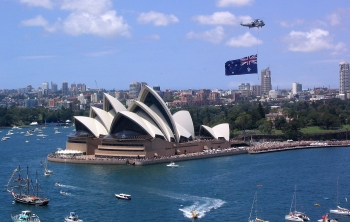 17 Interesting and Weirdest Facts about Australia 17 Interesting and Weirdest Facts about Australia |
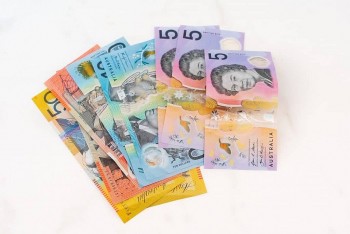 Who Are On Australian Money Of All Time Who Are On Australian Money Of All Time |
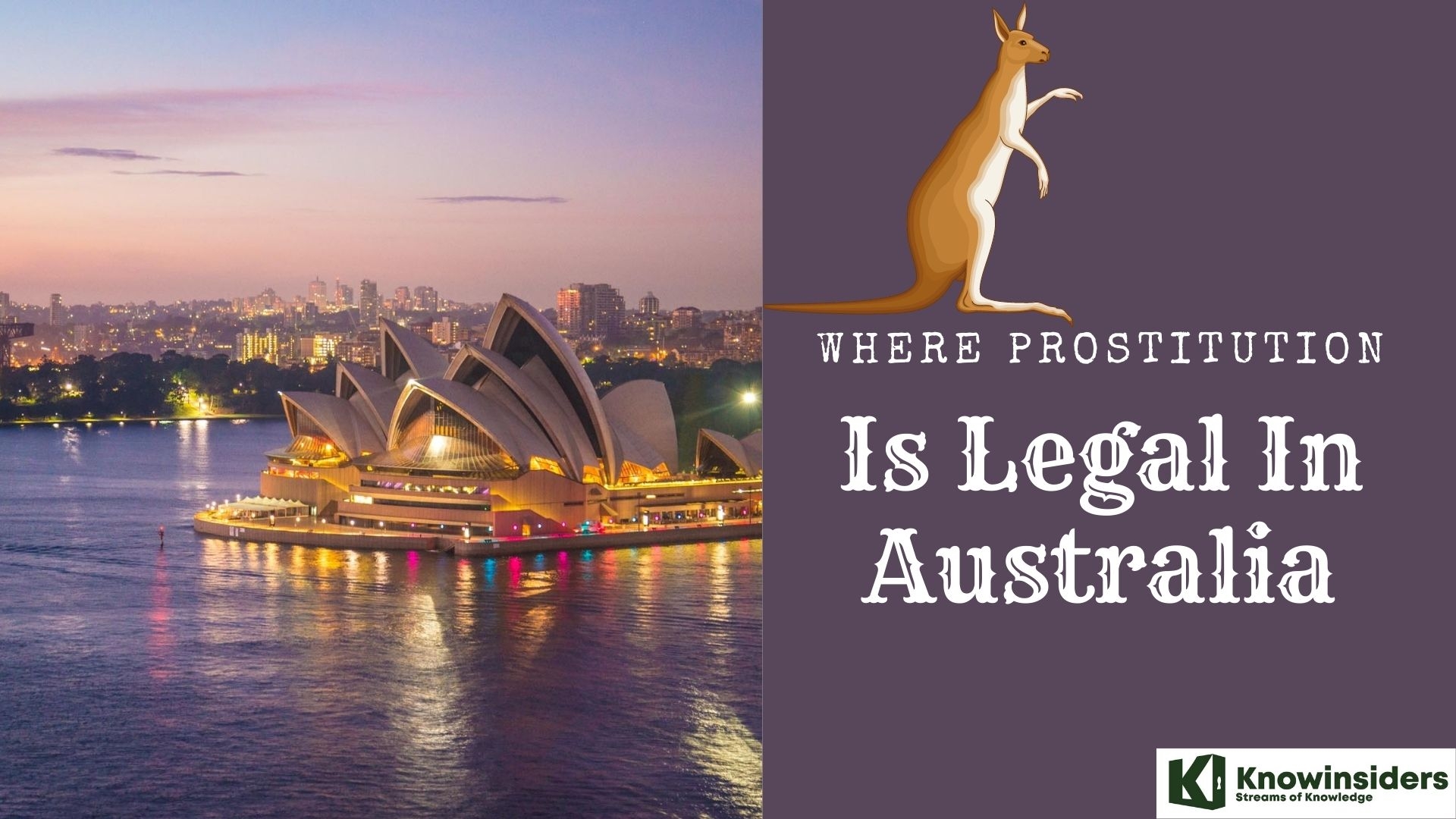 |
| Where The Prostitution Is Legal In Australia? |
| Table Content |
Federal legislation also affects some aspects of sex work throughout Australia, and of Australian citizens abroad. Let's take a look at where prostitution is legal in this country.
Prostitution in Australia (Sex work in Australia) is governed by state and territory laws, which vary considerably. Federal legislation also affects some aspects of sex work throughout Australia, and of Australian citizens abroad.
The nine Australian jurisdictions' legal approaches to prostitution have varied. Political considerations have contributed to some of the differences. In the latter half of the 20th century, the states and territories of eastern Australia liberalized their legal systems; however, in some states, the upper houses of Parliament blocked or significantly changed the legislation, restricting the liberalization.
By decriminalizing prostitution in 1979, New South Wales became the first state or territory to use a different approach. This was adopted as a template by New Zealand and tried unsuccessfully in Western Australia in 2008. Based on legalization, Victoria and Queensland adopted various models; Victoria in 1986 and Queensland in 1992. There have been no changes to the laws in the remaining Australian states of Tasmania, South Australia, and Western Australia, despite heated debate and numerous proposed legislative reforms.
The Northern Territory permitted partial decriminalization in 1992 and full decriminalization in 2019. The Australian Capital Territory adopted partial decriminalization in 1992. The topic continues to divide people in all jurisdictions, and there have been sporadic reviews in the three eastern states that have legalized prostitution. This article contains a lot of information about cisgender heterosexual prostitution, not homosexual or transgender prostitution. The terms "prostitute" and "prostitution" have gradually been replaced in Australia by "sex worker" and "sex work" through legislation and regulations.
Here is the laws of prostitution and if it is legal in Australia.
Is Prostitution Legal in Australia?
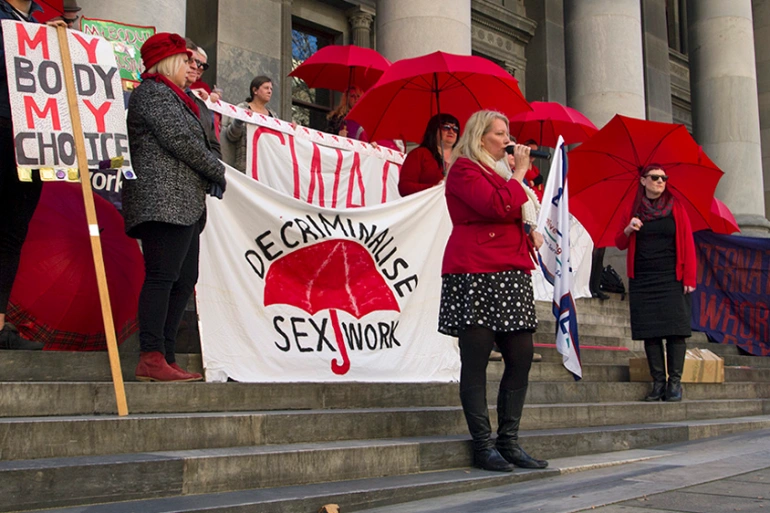 |
| Is Prostitution Legal in Australia |
Since their inception, lawmakers and the general public have disagreed about prostitution and the sex industry, which has led to confusion and contradiction over the past 40 years. Australian attitudes toward sex work are among the most liberal in the world, but this does not mean that prostitution laws are without controversy.
Legislators have had to strike a balance between upholding citizens' rights to engage in sexual activity and taking into account residents' and citizens' worries about prostitution's problematic aspects, which historically have included the spread of infectious diseases, concerns for the public's health, disorderly homes, and public nuisance. As a result, laws were introduced to ensure the safety of sex workers as well as the general public.
However, there are significant regional differences in Australia's prostitution laws. Due to the constantly changing laws and jurisdictions, as well as the taboo nature of the subject matter, people are unsure of what is legal in their state or territory, making it challenging for law enforcement, sex workers, and the general public to navigate the prostitution industry.
Where in Australia is Prostitution Illegal?
 |
| Photo: news.com.au |
New South Wales (NSW)
One of Australia's more tolerant states when it comes to sex work is New South Wales. Since 1995, it has been legal, and local council planning regulations now cover brothels. Any location that provides sex services, including full-service parlors, one-person operations (operating from home), and massage parlors that only provide partial sex services, can be referred to as a brothel. On commercial streets, street sex is also permitted, but it is not permitted in residential areas.
The act of solicitation, which refers to sex workers actively approaching potential clients or customers for payment for services outside of a designated brothel, is also subject to regulations. If the solicitation is conducted inside a business that advertises a non-sexual massage service or in front of a church, school, hospital, or residence, it is illegal.
Australian Capital Territory (ACT)
Since 1992, when The Sex Work Act 1992, which updated and improved on outmoded rights and terminologies for sex workers, was introduced, sex workers, escort agencies, and brothels have been legal in the Australian Capital Territory (ACT). While it is legal for sex workers in the ACT to work in brothels or parlors, they are all required to register with the Office of Regulatory Services (ORS), which is now a part of Access Canberra. Sex workers must work alone but have the option of working privately as a "sole operator escort".
Victoria (VIC)
Victoria has somewhat stricter sex work laws than NSW does. Under the Sex Work Act of 1994, sex labor is still legal in Victoria. Brothels have also been legalized and are subject to strict regulation by Consumer Affairs Victoria. Regulations for brothel-based sex workers include stringent registration, licensing, supply of materials (condoms, lubricant, etc.), and required STI tests every three months.
Since they are covered by the brothel's registration, sex workers employed there do not need to register with regulatory bodies separately. Small owner-operated brothels that employ up to one additional sex worker are exempt from registration but still need a license to operate.
Street sex work, which is prohibited and strictly enforced, is one area where the law significantly diverges. Any sex worker who is discovered soliciting or working on the street may face criminal charges. Sex workers are currently pushing for laws to be changed to protect them and promote their safety, as opposed to punishing them, as some believe the strict regulation does. You should seek legal counsel from an experienced sexual assault attorney if you or someone you know has been the victim of a sexual assault.
Queensland (QLD)
The Prostitution Act of 1999 makes brothels, prostitution services, and operators legal in Queensland. However, Part 6, Division 1 of the act specifies that unlawful prostitution includes public solicitation, nuisances associated with prostitution, duress, not using prophylactics, unlicensed brothels, massage parlour prostitution, and street prostitution. Brothels can be licensed by Queensland's Prostitution Licensing Authority. As in the other east coast states, brothels are permitted and may be established like any other business, but they are subject to regulation by the governing body and must obtain a license from the appropriate authority.
Northern Territory (NT)
Recent changes to the sex work laws in the Northern Territory now permit owners of sex work establishments to operate without a license. Instead, sex service businesses with three or more sex workers must simply obtain a suitability certificate from the Commissioner of Consumer Affairs, which takes into account criminal history and compliance with health and safety procedures.
With the exception of independent sex workers, escort agency businesses and any escorts working for escort agencies in the Northern Territory must register with the Territory Licensing Committee and police. The term "brothel" is no longer used in legislation, and street prostitution is still prohibited in the NT. These places are now referred to as "sex service businesses" and are legitimate as long as all licenses and certificates have been obtained legally and are current.
South Australia (SA)
The criminal law consolidation act of 1935 and the summary offenses act of 1953 made street prostitution, solicitation, receiving payment for any form of sexual services, and operating licensed brothels illegal. South Australia has some of the strictest sex work laws in the nation. A bill that would effectively decriminalize sex work in South Australia was introduced and passed by the Upper House in 2019, but it is still being discussed in the lower house, which keeps the harsh criminal laws in place.
Western Australia (WA)
The Prostitution Act 2000 formally legalised prostitution, however it has paradoxically criminalised many associated acts and behaviour which make legally performing sex work possible such as sex service establishments and solicitation etc. For example, brothels, solicitation and street or public sex work are all illegal, as is pimping, which is the illicit management of prostitutes for profit.
The criminalisation of sex works in WA has been a topic of controversy, as it has been found that Perth brothels and street sex workers (who operate illegally), have the lowest health and safety levels, according to Perth Now.
Where Is Prostitution Legal In The World?
What Are The Prostitution Laws In Australia?
 |
| Photo: Particle Scitech |
Australia's legalization of prostitution varies from state to state, sometimes only slightly and other times significantly. For instance, while some forms of prostitution are permitted in states like Tasmania, South Australia, and Western Australia, brothels and street prostitution are not. Contrarily, NSW permits brothels and street prostitution as long as they are not close to or visible from a home, a school, a church, or a hospital. You must also be 18 years of age or older and have no prior convictions in order to legally register as a sex worker.
The only set of prostitution and sex work laws that apply nationwide, regardless of state, are those that prohibit all forms of child prostitution, sex trafficking, and sex slavery, in addition to age of consent.
History of Prostitution in Australia
Depending on the time frame considered, different sex work practices have existed in Australia. Due to this, the discussion is divided into the convict, late colonial, and post-federation periods. Since it had little in common with modern conceptions of the term, pre-colonial "prostitution" among Aboriginal peoples is not taken into consideration here.
When European settlers began exchanging their European goods for Aboriginal women's sexual services, the "wife exchange" system was altered. English common law was in effect during the convict period and addressed issues like public nuisance, keeping a brothel, and disorderly homes.
Through the Contagious Diseases Acts, prostitution was seen as a public health concern during the late colonial era. The focus has been on making prostitution-related activities illegal since Federation in 1901. Paid sex is not expressly forbidden, but the criminal code effectively created a de facto ban.
Convict period 1788–1840
When the First Fleet arrived in Australia in 1788, prostitution most likely made its debut there. Some of the women who were transported to Australia had previously engaged in prostitution, while others did so out of necessity due to their economic situation and the extreme gender disparity in the workforce. The 1822 Bigge Inquiry mentions brothels, but most of these were run by women in their own homes.
Colonial period 1840–1901
In the colonial period, prior to federation, Australia adopted the Contagious Diseases Acts of the United Kingdom between 1868 and 1879 in an attempt to control venereal disease in the military, requiring compulsory inspection of women suspected of prostitution, and could include incarceration in a lock hospital.
Federal period 1901–1970s
After federation, criminal law was left in the hands of the states. But criminal law relating to prostitution only dates from around 1910. These laws did not make the act of prostitution illegal but did criminalise many activities related to prostitution. These laws were based on English laws passed between 1860 and 1885, and related to soliciting, age restrictions, brothel keeping, and leasing accommodation.
Post 1970s
Since the 1970s there has been a change toward liberalisation of prostitution laws, but although attitudes to prostitution are largely homogenous, the actual approaches have varied.
Since the laws were ineffective and put sex workers in danger, the Australian Institute of Criminology recommended that prostitution not be considered a crime in a report published in May 1990. To reduce corruption and abuse of power, the NSW Wood Royal Commission into Police Corruption recommended decriminalizing sex work in 1995. According to a survey done in the early 2000s, 1.9% of Australian men between the ages of 16 and 59 had paid for sex in the previous year and 15.6% had done so at least once in their lives. Men who had paid for sex were more likely than other men to smoke, drink more alcohol, have experienced a STI or had an HIV test, have more sexual partners, have had their first vaginal sex before the age of 16, and have engaged in heterosexual anal sex.
The number of sex workers in Australia between 2012 and 2014 has been estimated by UNAIDS, the United Nations Programme on HIV and AIDS, to be between 20 and 25,000. Australian sex workers are represented by the national non-governmental organization (NGO) called Scarlet Alliance.
Health
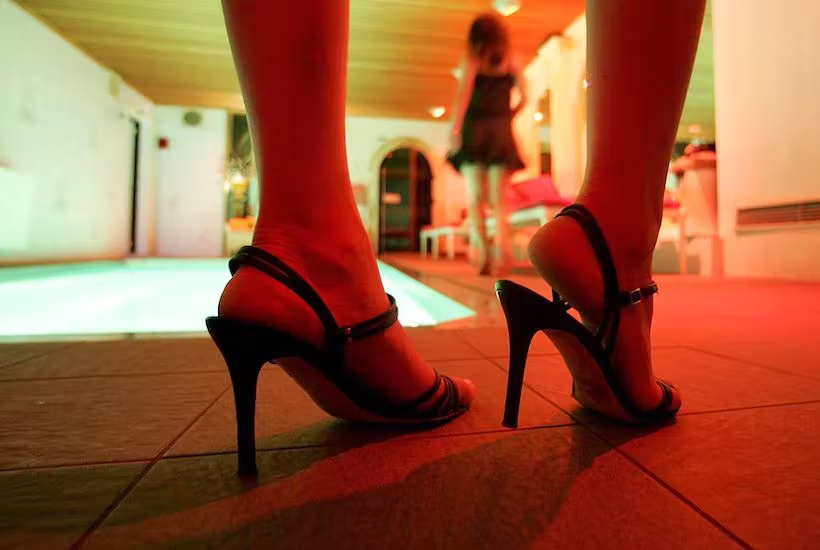 |
| Photo: The Spectator Australia |
Health and safety regulations and peer education have been effective at keeping STIs in the sex worker population at a low level, similar to the general population, and comparable among the states. Although there had been claims that sex workers were responsible for STI levels in mining communities, subsequent research has shown this not to be true.
What Defines Sex Work And Prostitution?
Prostitution specifically involves the practice of engaging in sexual activity with another individual for payment. It often carries a strong negative connotation, and as such has largely been replaced by the term “sex work”, which carries less stigma.
Sex work is broadly used to describe sexual services involving consenting adults who have not been illegally obtained, coerced, groomed or trafficked.
Sex work includes:
- Exotic dancing – pole dancing, stripping, go-go dancing, burlesque, lap dancing, peep show performers
- Modelling – Webcam, pornographic film acting
- Phone operators
- Erotic massage
- Grinding
- Prostitution – brothel work, massage parlour-related prostitution, bar or casino prostitution
- Escort services
- Sexual surrogates
The Case For Legalising Sex Work In Australia
 |
| Photo: Commercial Real Estate |
There are numerous justifications for and against making sex work legal in Australia. Some people worry that making sex work legal will lead to toxic workplaces, while others find it empowering to be able to freely express their sexual whims and desires. One of the most crucial factors to take into account is that by making sex work illegal, it may make it more dangerous for sex workers to conduct their business because clients, managers, and other people may be able to coerce, threaten, or extort them. Sex workers may also be more reluctant to contact the police out of fear of facing fines or arrests.
Regardless of opposing viewpoints or positions, it is critical to comprehend the prostitution and sex work laws and regulations in your state or territory as well as any workplace rights and protections that might be applicable to you. Making work safer for those involved may be a better solution than criminalizing a person's profession of choice.
Contact us right away if you're involved in a sex work criminal case. The most reputable criminal law firm in Sydney, LY Lawyers, can assist you in getting ready for the strongest possible legal defense for your case.
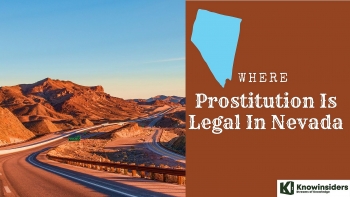 Where Prostitution Is Legal In Nevada Where Prostitution Is Legal In Nevada |
 Where Prostitution Is Legal In Nevada Where Prostitution Is Legal In Nevada Nevada is the only U.S. state where prostitution is legally permitted in some ... |
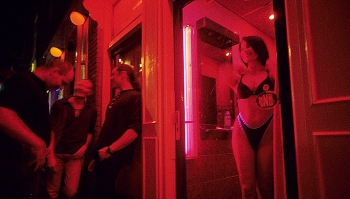 Where Is Prostitution Legal in Europe and Countries Ban on Sex Work Where Is Prostitution Legal in Europe and Countries Ban on Sex Work Which countries is prostitution legal in Europe and What countries observe a strict ban on sex work? |
 Is Prostitution Legal In China? Is Prostitution Legal In China? Prostitution in China is illegal but practiced openly. Scroll down to know more about sex worker in China! |
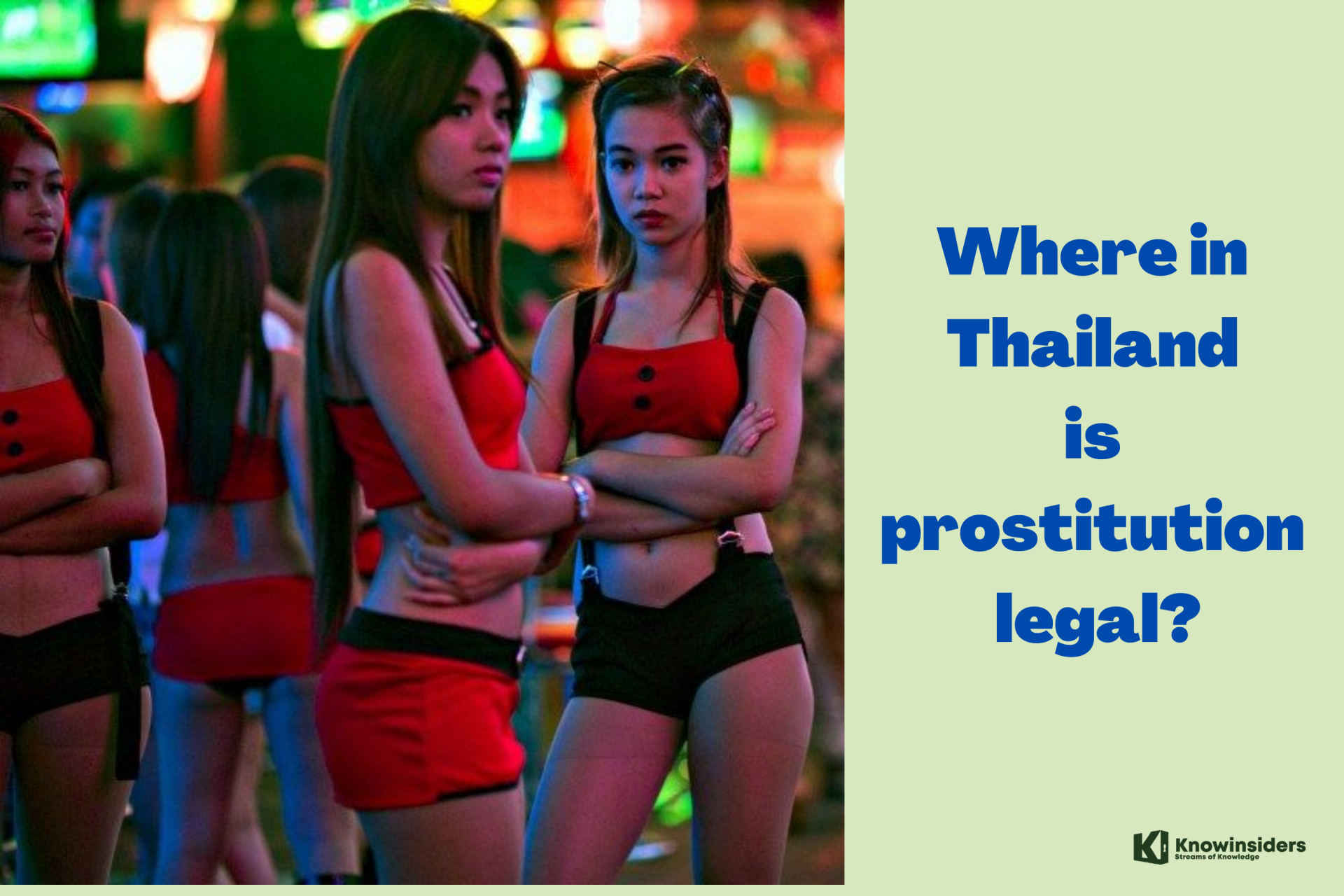 Where Is Prostitution Legal In Thailand? Where Is Prostitution Legal In Thailand? Sex workers have long been disapproved of in Thailand. Check out this article to know about the prostitution law in Thailand! |


























